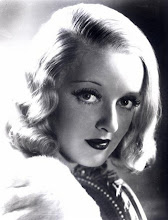
Though The Philadelphia Story is a comedy, it touches on some very serious themes. Questions about the nature of femininity are prevalent throughout the film. Tracy is a modern and independent woman; too independent, according to some of the men in her life. Her father, Seth Lord, outrageously blames her for his affair, claiming that if she had been a better daughter he wouldn't need to look elsewhere for a young woman's affection to make him feel young. He calls her a "goddess," stating that she wants nothing more than to be placed on a pedestal and worshipped. George, her fiancé, also misapprehends her this way, but unlike Seth he has no problem with Tracy's allegedly goddess-like persona. Tracy herself is more alarmed by the label; at one point she explains, "I don't want to be worshipped, I want to be loved." It seems only her ex-husband, C.K. Dexter Haven, is capable of seeing through her stand-offish persona to tell the difference between the two.
The other major theme of the movie is class differences. Most of the major characters -- that is, Tracy, her family, and Dexter -- were born into Philadelphia's high society, a subject that was of particular interest in my South Jersey college classroom. They are sharply contrasted with the nouveau-riche George as well as the working-class tabloid reporters, Mike and Liz.
My professor paid particular attention to the difference between the poor, who create art, and the rich, who patronize the artists. Mike is a writer; he works for the tabloid solely as a means of supporting itself, as he could not do with his fiction, but nevertheless he is paid to write in some form or another. Liz is a photographer. Both of these professions are inherently creative. The two characters who lack money are also portrayed as the only two who have artistic talent; the other characters contribute to the arts by funding that talent, not by producing any works themselves.
Of course, the film plays with class stereotypes as well, such as when Tracy calls Mike a "snob," as well as their drunken flirtation the night of Tracy's wedding, culminating in Mike's offer to marry her in George's place. In the end, however, everyone ends up with members of their own class: Tracy with Dexter, Seth with Margaret, Mike with Liz... and George off by himself, because the moral of the story is that nobody likes new money.



It's so weird that there's so much I would usually dislike in this movie...the class issues, the sexist issues but yet I love it unabashedly. the power of cary, kate and Cukor.
ReplyDeleteI love this movie. It's such a smart film, with so much going on. As you said, the movie never loses it's appeal, even with multiple watchings. Every time I watch it, I think, "I forgot how much I love this movie!"
ReplyDeleteCool-- I've always loved this one, but never really took such an in-depth look at it. Cool. :)
ReplyDelete